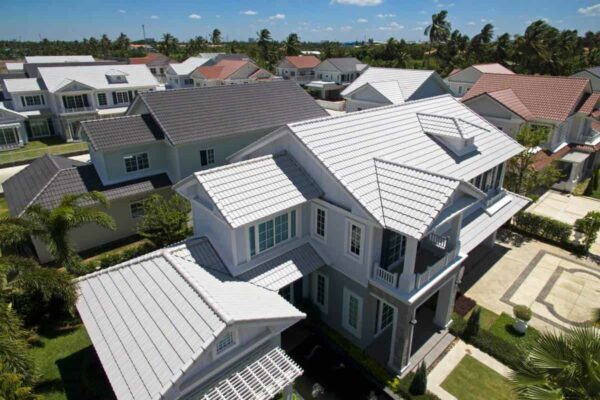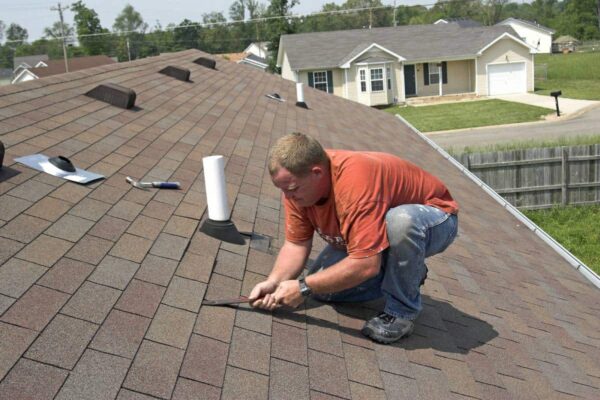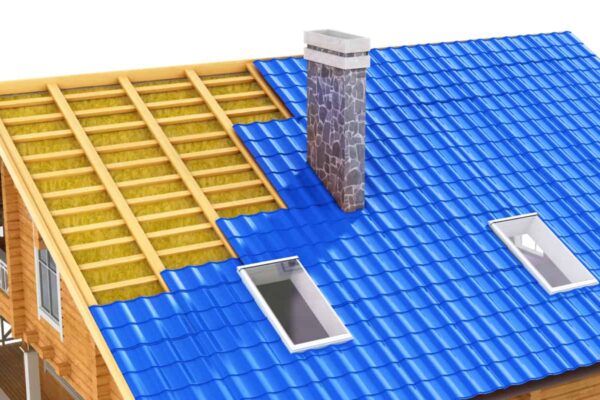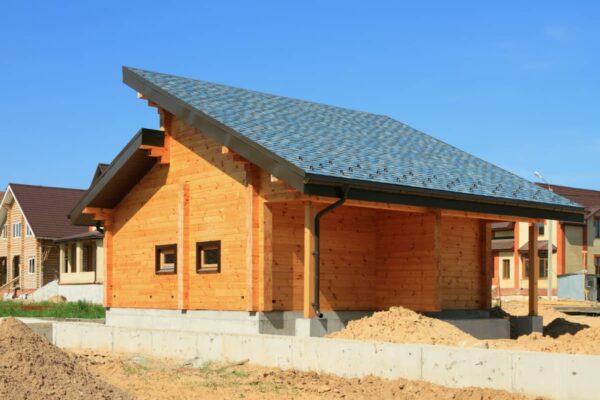Modified bitumen roofing systems, sometimes known as “mod bit” roofing, are made using an advanced version of asphalt roofing to help create a better seal and a more durable roof. This type of roofing has become popular with commercial buildings because of its strength and resistance to inclement weather. It can also be used for residential roofing, for low sloped roofs. There are a few different types of this roofing material that can affect it, such as making the material more flexible, or making it age better. Here we’ll examine some of the greatest benefits and drawbacks of this roofing system.
Benefits of Modified Bitumen Roofing
Performs Well in Cold Weather
The material used in modified bitumen roofing is formulated to remain flexible even when it is freezing. Modified bitumen is, therefore, less likely to crack or create leaks when exposed to low temperatures. Home and business owners do not have to worry about this material becoming brittle and getting damaged during cold fronts.
Self-Adhering Material
Modified bitumen does not require heat to seal. All roofers need to do is to peel off the backing and unroll the material on your roof. This makes modified bitumen convenient, easy to install, and effective. Also, the self-adhering property lowers the possibility of heat-related accidents occurring during installation of the new roof.
Modified Bitumen has Low VOC Levels
Volatile organic compounds (VOCs) are harmful gases that can be emitted from some paints used in roofing. A significant benefit to modified bitumen is that the material has very low VOC levels. These lower emission levels mean that the risk of health issues that can occur due to exposure to VOCs is also lowered.
Modified Bitumen is Recyclable
Some of the material used in modified bitumen roofing systems can be recycled. Because large amounts of roofing material, such as from a commercial building, can create a huge amount of waste, a material that can be recycled can be a significant benefit for the environment, as long as it is recycled appropriately.
Reflective Properties Can be Beneficial
The roofing material used with modified bitumen is fairly light compared to some other materials. Because of this the material does not absorb as much heat as others. This can help keep homes and businesses cool during the day, which can help reduce energy output for air conditioning and even help reduce strain on air conditioning systems.
Material Drawbacks
Lifespan
Some types of modified bitumen can start to show wear and tear after a decade or so. The lifetime of the material depends on a few variables. For example, the type of mod bit roofing material used. Some systems, such as APP (attactic polypropylene), have longer expected lifespans. In addition, poor installation can affect the longevity of modified bitumen, so always hire a professional roofing contractor to install it.
Leaks are Hard to Detect
Modified bitumen seals perfectly. Therefore, if a leak is noticed in the building, it can be difficult to identify where it’s coming from. Usually a professional roofing contractor can find and fix a leak quickly, so if one occurs, consider calling a professional to take care of it before it gets worse.
Material Can Have a Strong Smell
The application process for modified bitumen can cause a strong odor that can last for a few days depending on how much space was covered. For residences and businesses, be sure to consider this when getting your roof installed so that you are prepared to either relocate temporarily or deal with the smell for a few days.
If you think modified bitumen might be the right roofing system for your home or commercial building, contact Divided Sky Roofing & Exteriors, a roofing contractor in San Marcos, TX, for more information.









